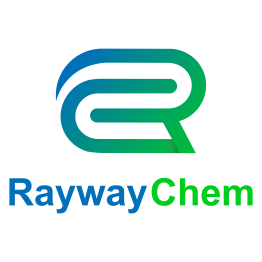In order to extend the life of high polymer material, Inhibit or delay the oxidative degradation of polymers, usually use antioxidants to slow down the automatic oxidation of rubber, plastics, petroleum, grease and food materials. There are many varieties of antioxidants, according to their chemical structure can be divided into amines, phenols, phosphoric acid cool class, sulfur cool class, etc. Phenolic antioxidants can be subdivided into monophenols, biphenols, polyphenols, etc., the antioxidants with more hindered phenolic structure, with low toxicity, no discolouration, and non-polluting characteristics (of course, this is relative to the amine), and therefore a large number of applications in the plastics industry and the rubber industry, light-coloured, bright-coloured products, in addition to oil, grease, food industry also has a wide range of applications.
According to the antioxidant protection mechanism from the molecular structure, molecular weight and volatility, migration, extractability, colouring, antioxidant efficiency of the test results, analysis and comparison of the widely used alkyl monophenolic antioxidant 264 (BHT), alkylidene-bis phenolic antioxidant 2246 and polymeric alkyl polyphenolic antioxidant KY-616 antioxidant basis factors and advantages and disadvantages.
Ⅰ. Principle of action of antioxidants:
As an antioxidant should be able to react with the chain growth radicals (R- or ROO-) in auto-oxidation, which is a chain reaction interruption, as its main mode of action are the following two kinds of BHT as an example:
①As a hydrogen donor
②As a free radical capturing agent
From the above mechanism of antioxidants, it is easy to see that for phenolic antioxidants: the phenolic hydroxyl group in the molecule is the main antioxidant functional group (hydrogen-giving body), theoretically speaking: “antioxidant molecules play a more antioxidant functional group, which means more hydrogen-giving body, then the inhibition of free radicals is strong, the antioxidant effect is good. “
Ⅱ. Comparison of antioxidant base factors of antioxidants 264, 2246 and KY-616 in natural latex:
① Molecular weight
Molecular weight: 220.4
Structural formula:

Molecular weight: 340.5
Structural formula:

Antioxidant KY-616(WingStay L,CPL)
Molecular weight: ≥650
Structural formula:

2、Volatile test:
Volatility is closely related to the molecular structure and molecular weight of the substance, the molecular weight of the antioxidant, volatility is lower, in addition to volatility and temperature, the size of the exposed surface area and other circumstances. If other conditions are the same, the molecular weight of the antioxidant is lower volatility, the following are the same conditions in the case of 264 (BHT), antioxidant 2246 and antioxidant 616 in the case of 10 ℃ per minute temperature rise in the experimental records.
The picture below shows the thermogravimetric analysis curves for different antioxidants.
Thermogravimetric analysis curves for different antioxidants
3、Extractability test
Results of aging tests on foam latex specimens in an oven with circulating air after boiling and washing with detergent:
4、Degree of discolouration evaluation:
Relative to the control (without antioxidants) by visual evaluation of the degree of discolouration. All use 1% antioxidant with the preparation of specimens in the latex.
5、Aging test
The test results for the un-oxidized, antioxidant 2246 and antioxidant 616 are as follows:
Ⅲ、Evaluation results
The comparison results of the specimens with the addition of antioxidant 264 (BHT), antioxidant 2246 and antioxidant 616 are as follows:
Disadvantages are indicated by “-“, and advantages by “+”, and the number of symbols represents the level of superiority or inferiority.
Polyphenolic antioxidant KY-616 has a longer-lasting antioxidant effect than monophenolic 264 and bisphenol 2246 antioxidants
Conclusion: Antioxidants 2246 and antioxidants 616 are more effective than antioxidant 264 (BHT) and more non-toxic and environmentally friendly.









